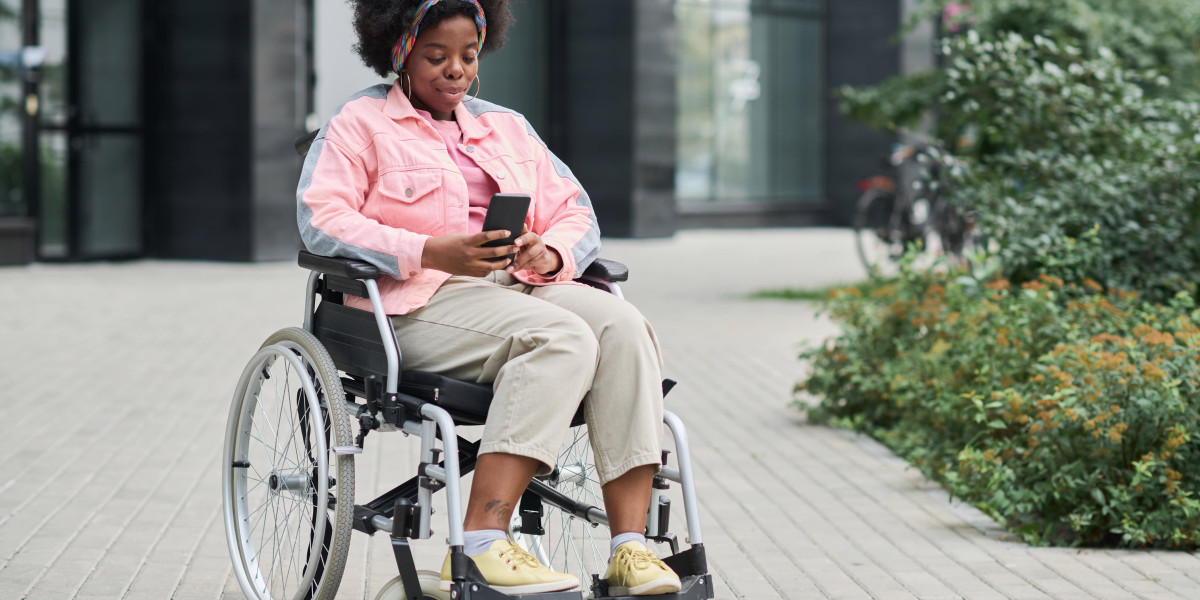Navigating the World of Mobility Scooters in the UK
Mobility scooters have actually become an important tool for many in the United Kingdom, using a useful and dignified solution for individuals with mobility problems. These scooters not only enhance the lifestyle for their users but likewise offer a sense of self-reliance and liberty. This extensive guide aims to provide an overview of mobility scooters in the UK, including their advantages, types, buying considerations, and upkeep pointers.

Intro to Mobility Scooters
A mobility scooter is a battery-powered lorry designed to assist people with strolling troubles or restricted mobility to move around more easily. Unlike manual wheelchairs, which require substantial physical effort, mobility scooters are simple to run and can be utilized both inside your home and outdoors. They are particularly helpful for older adults and individuals with disabilities, allowing them to take a trip longer distances and navigate various terrains with ease.
Advantages of Mobility Scooters
Self-reliance and Freedom
- Mobility scooters empower users to travel individually, lowering the requirement for support from others.
- They can be used for everyday activities such as shopping, going to pals, or going to social events.
Economical
- While there are preliminary expenses, mobility scooters can be an affordable option to other mobility help, especially in time.
- Lots of models are offered for rent or lease, providing versatility for users with varying requirements.
Convenience and Safety
- Scooters are developed with ergonomic seats and adjustable features to make sure comfort during long periods of usage.
- Safety functions such as lights, horns, and braking systems improve user confidence and security.
Social Inclusion
- By allowing people to take part in neighborhood activities, mobility scooters promote social addition and decrease feelings of seclusion.
Health Benefits
- Regular use of a mobility scooter can help maintain physical health by motivating users to remain active and engaged.
Kinds Of Mobility Scooters
Mobility scooters in the UK come in numerous types, each designed to cater to different requirements and preferences:
Class 2 Scooters (Pavement Scooters)
- Speed: Up to 4 mph
- Use: Designed for use on pavements and within indoor areas
- Benefits: Compact and lightweight, perfect for brief distances and everyday errands
Class 3 Scooters (Road and Pavement Scooters)
- Speed: Up to 8 mph on roadways and 4 miles per hour on pavements
- Use: Suitable for longer journeys and can be used on both roadways and pavements
- Benefits: More robust and efficient in handling various surfaces, including rough surfaces and inclines
Off-Road Scooters
- Speed: Varies, however typically greater than Class 2 and Class 3 scooters
- Use: Designed for off-road usage, including parks, trails, and irregular surface areas
- Benefits: Enhanced sturdiness and traction, ideal for daring users
Travel Mobility Scooters
- Speed: Varies, however normally up to 4 miles per hour
- Usage: Portable and easy to take apart for transport
- Benefits: Perfect for users who take a trip frequently and require a portable service
Getting Considerations
When buying a mobility scooter, a number of elements should be considered to guarantee the very best suitable for the user's needs:
User's Physical Condition
- Weight Capacity: Ensure the scooter can support the user's weight.
- Height and Reach: Choose a model that is adjustable to fit the user's height and reach conveniently.
Meant Use
- Indoor/Outdoor: Determine if the scooter will be used mostly inside, outdoors, or both.
- Terrain: Consider the kind of surface the user will navigate, consisting of any hills or rough surfaces.
Battery Life and Range
- Battery Type: Lithium-ion batteries are typically more effective and longer-lasting than lead-acid batteries.
- Variety: Check the scooter's range to ensure it meets the user's everyday travel needs.
Safety Features
- Brakes: Look for scooters with reliable braking systems.
- Lights and Horns: Essential for exposure and notifying others.
Guarantee and Customer Support
- Service warranty: Ensure the scooter includes a thorough service warranty.
- Customer Support: Choose a respectable maker with great client service and assistance.
Maintenance and Safety Tips
Correct upkeep is vital to ensure the longevity and safety of a mobility scooter:
Regular Battery Checks
- Charging: Always keep the battery charged to avoid deep discharge.
- Cleansing: Keep the battery compartment tidy and complimentary from dirt and moisture.
Tire Maintenance
- Inflation: Regularly check and keep correct tire pressure.
- Assessment: Inspect tires for wear and damage, replacing them as required.
Tidy and Lubricate
- Cleansing: Wipe down the scooter regularly to keep it complimentary from dirt and gunk.
- Lubrication: Lubricate moving parts to prevent rust and ensure smooth operation.
Security Checks
- Brakes: Test the brakes routinely to guarantee they are working properly.
- Lights and Horns: Check that all safety functions are functional.
Follow Manufacturer Guidelines
- Manual: Refer to the user manual for specific maintenance instructions.
- Service: Schedule routine service consult a qualified professional.
Often Asked Questions (FAQs)
Can anyone utilize a mobility scooter?
- No, only people with a medical requirement or disability are qualified to utilize a mobility scooter on public roadways and pavements in the UK. However, they can be utilized by anybody on personal property.
Do I need a license to drive a mobility scooter?
- No, a license is not required to use a Class 2 or Class 3 mobility scooter. Nevertheless, users should be over 14 years old and have a genuine need for the scooter due to a disability or medical condition.
How quick can a mobility scooter go?
- Class 2 scooters have an optimal speed of 4 mph, while Class 3 scooters can rise to 8 miles per hour on roadways and 4 miles per hour on pavements.
Can I take a mobility scooter on public transport?
- Some public transportation, such as trains and buses, might enable mobility scooters, but it depends upon the specific service and the size of the scooter. It's best to examine with the transport supplier in advance.
What is the life-span of a mobility scooter?
- With appropriate upkeep, a mobility scooter can last numerous years, typically in between 5 and 10 years.
Can I get financial help to buy a mobility scooter?
- Yes, monetary help may be available through the Disabled Facilities Grant (DFG), local authorities, or charitable organizations. Additionally, some insurance companies may cover part of the cost.
Mobility scooters are a valuable help for people with mobility issues in the UK, using a variety of gain from increased independence to enhanced social participation. By thinking about the user's needs, the intended use, and the scooter's functions, one can choose the right model to boost their lifestyle. Regular maintenance and adherence to security standards are vital to ensure the scooter remains a dependable and safe mode of transportation. For those who qualify, monetary assistance may be available to make the purchase more affordable. Whether for everyday usage or occasional getaways, a mobility scooter can significantly enhance the user's capability to browse the world with confidence and ease.
Extra Resources
- Mobility Aids UK: A thorough directory site of mobility help and scooters.
- NHS Choices: Information on mobility help and financial assistance.
- Disability Living Allowance (DLA): Guidance on looking for financial backing for disability-related expenses.
By exploring these resources and considering the points detailed in this guide, people can make an educated decision about purchasing and utilizing a mobility scooter in the UK.








